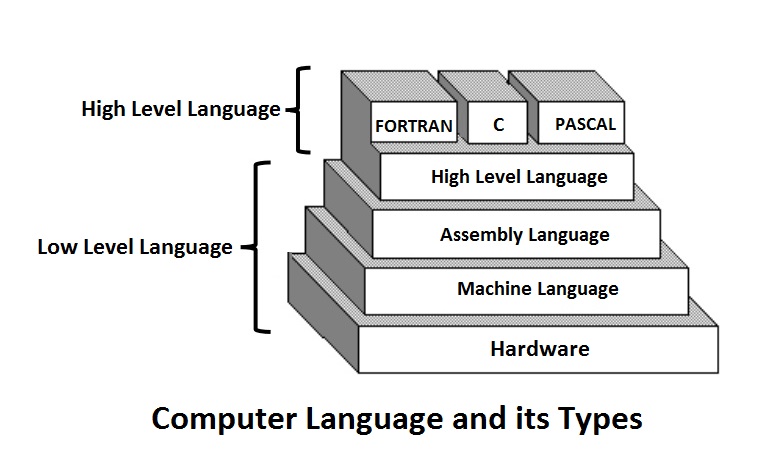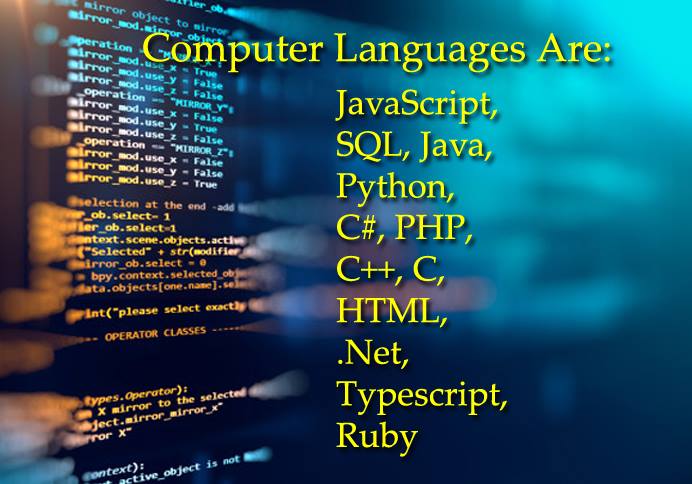What is Computer Programming?
Computer programming is a way of giving computers instructions about what they should do next. These instructions are known as code, and computer programmers write code to solve queries or perform a task.
The computer programs use specialized languages to communicate with computers, applications, and other systems to get computers and computer networks to perform a set of specific tasks easily.
This computer programming divided into two types like Front-End Development and Back-End Web Developer.
The Front-end development involves working with code that produces the elements that users can see and interact with; it’s all about how a website looks and feels. And, the Back-end web developers make sure the website works as it should do, and the code they write is normally invisible to users. Back-end web developers work with databases that store information such as customer details, and servers which are where databases live.
Computer Programming Languages:
Now a day’s different kinds of languages have been developed to perform different types of work on the computer. Some of the computer languages like JavaScript, SQL, Java, Python, C#, PHP, C++, C, HTML, .Net, Typescript, Ruby, and other.
The programming languages are divided like given below.
- Interpreted Programming Languages
- Functional Programming Languages
- Compiled Programming Languages
- Procedural Programming Languages
- Scripting Programming Languages
- Markup Programming Languages
- Logic-Based Programming Languages
- Concurrent Programming Languages
- Object-Oriented Programming Languages
Interpreted Programming Languages:
The interpreter languages are a programming language which executes the program directly and translates the each and every sentence into a sequence.
Some of the interpreted languages are APL, BASIC, AutoIt, Forth, Eiffel, ICI, Lua, Pascal, PCASTL, and so on.
Functional Programming Languages:
Functional Programming tries to bind everything in pure mathematical function styles. It is a declarative type of programming style, the main aim of this programming language “what to solve” in contrast to an imperative style where the main focus is “how to solve”.
Some of the Functional Programming Languages like Haskell, JavaScript, Scala, Erlang, Lisp, ML, Clojure, OCaml, Common Lisp, Racket, etc.
Compiled Programming Languages:
The Compiled Programming Languages whose implements are typically compilers like translates that generates machine code from source code, and step-by-step execution of source code, where pre-runtime translation takes place.
Some of the Compiled Programming Languages, such as ADL, ALGOL, C, C++, C#, COBOL, Cobra, FORTRAN, Java, Visual Basic, XL, etc.
Procedural Programming Languages:
A procedural language is a type of computer programming language that specifies a series of well-structured steps and procedures within its programming context to compose a program. It contains a systematic order of statements, functions, and commands to complete computational tasks or programs.
A procedural language is also known as imperative language.
Some of the Procedural Programming Languages like Bliss, Chuck, CLIST, HyperTalk, Modula-2, Oberon, Component Pascal, MATLAB, PL/C, RPG, Rapira, and so on.
Scripting Programming Languages:
A scripting language is a programming language designed for integrating and communicating with other programming languages. The programs are written for a special run-time environment that automates the execution of tasks that could alternatively be executed one-by-one by a human operator.
Some of the Scripting Programming Languages are AppleScript, Awk, BeanShell, ColdFusion, PHP, VBScript, Tcl, etc.
Markup Programming Languages:
A markup language is a computer language that uses tags to define elements within a document. It is human-readable, meaning markup files contain standard words, rather than typical programming syntax.
Some of the Markup Languages such as Curl, SGML, XML, HTML, XHTML, and more.
Logic-Based Programming Languages:
Logic programming is a type of programming language which program statements express facts and rules and about problems within a system of formal logic.
Some of the Logic Programming Languages like Absys, ALF, Datalog, ROOP, Prolog, Poplog, Fril, Janus, Leda, etc.
Concurrent Programming Languages:
The Concurrent Programming Language is computer programming languages that provide for the execution of operations concurrently or within a single computer or across the number of computers.
Some of the Concurrent Programming languages are ABCL, Afnix, Concurrent Pascal, Cilk, Joule, Limbo, SR, Pict, SALSA, etc.
Object-Oriented Programming Languages:
The Object-Oriented Programming language is a high-level programming language. It incorporates logical classes, objects, methods, relationships, and other processes with the design of software and application.
Some of the main important Object-Oriented Programming Languages like Agora, BETA, Cecil, MOO, Moto, REBOL, Scala, Self, Slate, IO, XOTcl, Prograph, and so on.
Related Articles:
   |
   |
   |

Leave a Reply